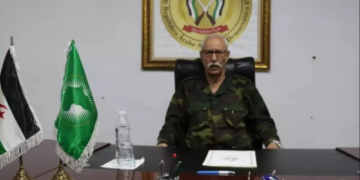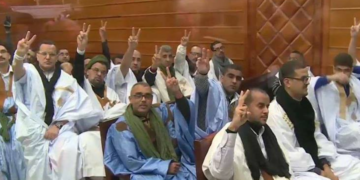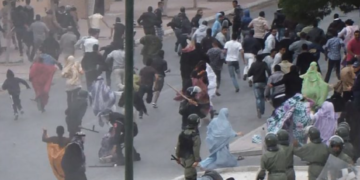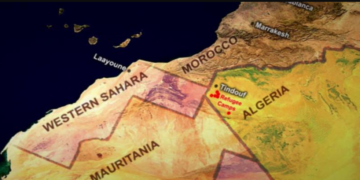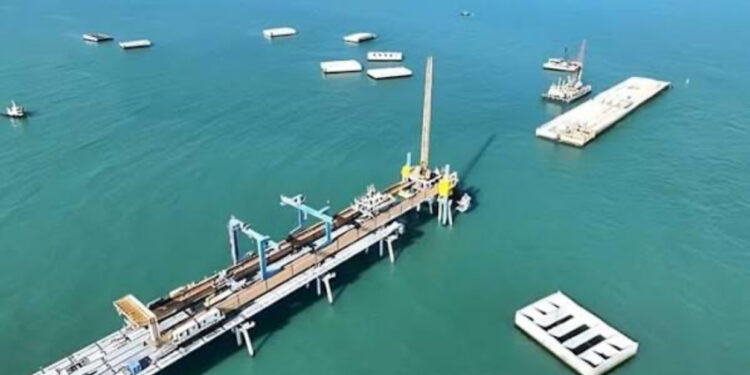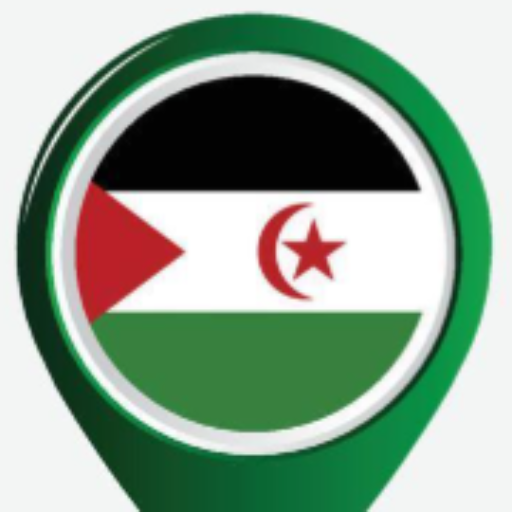The recent deaths of two workers, Mohamed El Bouadi and Ayoub Bouri, in an accident at the new Fosboucraa Port have once again exposed the harsh reality faced by workers in one of the largest industrial projects in Western Sahara.
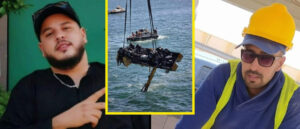
While the project is publicly promoted as a symbol of “development and investment,” behind its walls lies a darker truth — a site where human dignity is buried beneath profit, and where the lives of workers seem expendable in the pursuit of production targets.
⸻
A Giant Project with No Safety
Behind the gates of the Fosboucraa facility, stories of danger and neglect abound.
Outdated machinery, broken trucks, a lack of protective gear, and toxic phosphate dust fill the air.
Every day, workers are exposed to radioactive and phosphate dust containing heavy elements such as cadmium and uranium, known for their long-term effects on the lungs and bones.
Many have developed chronic illnesses, yet there are no regular medical checkups, no hazard allowances, and no real compensation system.
Even rest areas, intended to offer relief after long hours underground, are cramped, unventilated rooms unfit for human use — a living testament to how little the company values its workforce.
⸻
Short-Term Contracts: A Weapon of Silence
Fosboucraa’s administration maintains control through a policy of three-month renewable contracts, a tool designed to keep workers in constant fear of dismissal.
This strategy effectively silences demands for rights or safety measures — workers simply cannot afford to speak up.
To make matters worse, declared salaries in social security records are lower than the real wages paid, a blatant violation of labor law and social justice, yet the authorities remain silent.
⸻
Excluding the People of the Sahara
Perhaps the most troubling issue is the systematic exclusion of Sahrawis from employment in their own land.
Despite the mine and port being located in Western Sahara, the company recruits most of its labor force from northern Moroccan cities such as Khouribga, Safi, and Casablanca — the traditional strongholds of OCP, the parent company.
Local estimates suggest that only about 10–15% of the workforce is Sahrawi, while hundreds of temporary workers are brought from outside the region.
This policy of “silent replacement” effectively marginalizes the local population, leaving Sahrawis unemployed while outsiders profit from their resources.
⸻
Numbers That Expose the Contradiction
The OCP Group, which controls Fosboucraa, is one of the world’s largest phosphate producers — and its profits are staggering:
• 2024: Revenue reached approximately MAD 97 billion (around $10 billion).
• 2023: Revenue totaled MAD 91.3 billion, despite a global price drop.
• 2022: A record year with MAD 114.5 billion in revenue and an operating margin exceeding 36%.
• First half of 2025: Revenue reached MAD 52.1 billion, up 21% from the same period in 2024.
Morocco holds over 70% of the world’s known phosphate reserves, and a significant share is extracted from the Fosboucraa mine near Laayoune, the only export route for Saharan phosphate.
These numbers expose a bitter truth: billions in profits flow north, while the workers who mine the phosphate can barely afford safety gloves.
⸻
Official Silence and the Absence of Accountability
To date, no detailed report has been released on the deaths of Mohamed El Bouadi and Ayoub Bouri — no investigation, no responsibility established.
Local activists confirm that workplace accidents are recurrent, yet neither OCP nor its subcontractors face penalties, and families of victims often receive little or no compensation.
This silence is not neutrality — it is complicity.
It reflects an official stance that places economic gain above human life and treats Sahrawi workers as expendable tools rather than citizens with rights.
⸻
Human Life Before Phosphate
It is time to demand accountability from the companies operating in Fosboucraa and to compel them to comply with international labor and human rights standards.
Above all, Sahrawis must be given priority in employment and decision-making within projects that exploit their land’s resources.
There can be no genuine “development” in Western Sahara while its wealth enriches others and its people remain excluded.
Phosphate has no value if its price is paid in human lives.
Morocco may profit from the Sahara’s resources —
but with every fallen worker, it loses a part of its humanity.

